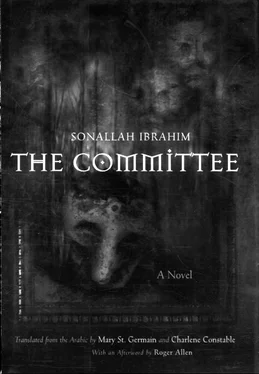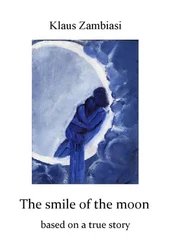The ringing endorsement of "the Doctor's" personal qualities and achievements undertaken by the narrator in response to a challenge from the Committee (and particularly the member nicknamed "Stubby") becomes, in Sonallah Ibrahim's skillful hands, a stinging indictment of the values of an entire class in Egypt that has chosen to enrich itself at the expense of its fellow citizens. The author's ire at the increasing polarization of society expressed in this powerful fashion can be placed alongside that of his fellow Egyptian novelist, Naguib Mahfouz, in the novels that he too penned during this period, among them Malhamat al-Harafish (1977; The Harafish, 1994), Al-Baqi min al-Zaman Sa'ah (Just One Hour Left, 1982), and, above all, Yawm Qutil al-Za`im (1985; The Day the Leader Was Killed, 1989).
The author of The Committee, Sonallah Ibrahim, was born in 1937 and educated both in Egypt and the Soviet Union. Like many other leftist writers whose careers span the course of the Egyptian revolution, he suffered the horrors of imprisonment and forced labor between 1959 and 1964. The work that first attracted the attention of critics both inside and outside Egypt was a direct consequence of this experience, the short novel Tilka al-Ra'ihah (1966 [incomplete], 1986 [complete]; The Smell of It, 1971). Like Al-Lajnah (The Committee), it is narrated in a terse, detached style that only serves to emphasize the incredible degree of tedium and tension felt by a recently released political prisoner forced to be at home for a police check every few hours. In an astute study of Ibrahim's works, Sarnia Mehrez points out that a succession of works that he has penned can be viewed as a running commentary on the book in Egypt and therefore on the general state of civil liberties in the majority of countries within the Arab world region (Egyptian Writers Between History and Fiction, 1994, pp. 39-5 7). In 1974 Ibrahim had published Najmat Aghustus (August Star), a sardonic account of the officially orchestrated glorification of the high dam project in Aswan, but with Al-Lajnah (The Committee) there is once again a return to the all-too-real world of interrogations and constraints that are, it would appear, the necessary implements of such a closely monitored society. Mehrez convincingly demonstrates the way in which The Committee can be viewed as Ibrahim's commentary on the atmosphere of suspicion and institutional harassment that are so clearly represented by the tortuous publication history of Tilka al-Ra'ihah (and the complete edition was eventually to be published in Morocco). Still later comes Bayrut, Bayrut (Beirut, Beirut, 1984), a novel that, against the background of the Lebanese civil war [1975-88], explores, and indeed debunks, the reputation of Lebanon as the liberal center of Arabic book publication. Two novels of the 1990s, Dhat (1992) and Sharaf (1997) reveal Sonallah Ibrahim as a widely recognized craftsman of contemporary fiction, a member of a distinguished generation of novelists who, working in the mighty shadow of Mahfouz, continue their experiments with texts and styles in order to reflect their views of his society and world in excitingly new ways.
In terse and undecorated prose of great subtlety, Sonallah Ibrahim's The Committee introduces English readers to a world that has already become familiar to us through the works of Kafka and other portrayers of the bureaucratic and totalitarian mind. However, it has new and important things to tell us. For, in an era in which the term "globalism" has become a catchword used to imply, reflect, and promote what is widely viewed as the way of the future, it is a salutary corrective to read an accomplished narrative from another cultural tradition and world area, one indeed that is a target of global trends and that, like many others, views the alleged benefits involved in this entire process with a wary and often jaundiced eye. It is merely part of Sonallah Ibrahim's artistry that he manages to couch such notions in a narrative of such cogent subtlety.
Sonallah Ibrahim is an Egyptian novelist and a major literary figure in the Arab world. He has published short stories, historical and scientific children's books, translations of American and German fiction, and seven novels, including Tilka al-ra'iha (The Smell of It), Beirut-Beirut, and Warda.
Mary St. Germain is head of the Near East section at the University of Washington Libraries.
Charlene Constable studied Arabic at the University of Washington and has traveled in Syria, Jordan, and Egypt. She has a long-standing interest in translation.











